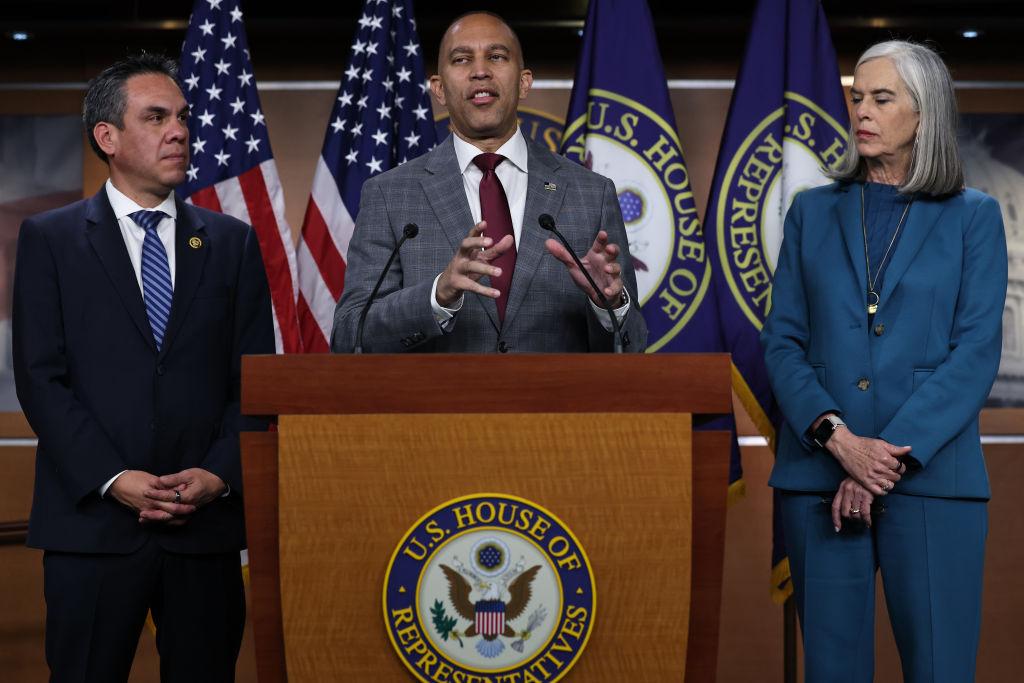Amid mounting public scrutiny and fierce bipartisan debate, Congress has removed pay raises for lawmakers from the latest spending bill. The decision, announced late Thursday, comes as lawmakers race to pass a funding package to avert a government shutdown.
Pay Raises Removed Amid Intense Pressure
The proposal to include pay raises for members of Congress sparked widespread backlash, with critics arguing that elected officials should not benefit financially during a period of economic uncertainty. Lawmakers from both parties conceded to public pressure, agreeing to strike the provision from the spending bill.
House Speaker Mike Johnson (R-La.) called the move necessary to maintain focus on essential priorities. “Americans are facing real challenges, and our focus should be on addressing those—not on giving ourselves raises,” Johnson said.
The decision marks a significant shift, as lawmakers had quietly included the measure in initial drafts of the bill. Critics accused Congress of attempting to slip the provision through without public notice, further eroding trust in the institution.
Bipartisan Criticism Highlights Broader Frustration
The removal of pay raises underscores growing frustration with congressional spending practices. While members of Congress argued that cost-of-living adjustments are routine, the timing of the proposal—amid debates over government funding—was widely seen as tone-deaf.
Senator J.D. Vance (R-Ohio) criticized the original inclusion of the pay raises, stating, “It’s outrageous to consider raises for Congress while families are struggling to make ends meet.” Similarly, Senator Elizabeth Warren (D-Mass.) expressed disapproval, emphasizing the need to prioritize working Americans.
Meanwhile, watchdog organizations highlighted that congressional salaries have remained static for years, arguing that modest adjustments are justified. However, these arguments failed to resonate with a public frustrated by perceived government dysfunction.
Public Reaction Fuels Debate
The news quickly became a flashpoint on social media, with users weighing in on the decision. Twitter user @JusticeForAll applauded the removal, writing, “Finally, some accountability! Congress shouldn’t get a raise until they fix the mess they’ve created.”
On the other hand, @PolicyHawk defended the original measure, tweeting, “Paying lawmakers fairly ensures we attract competent leaders. Let’s not politicize every decision.” Meanwhile, @FedUpVoter commented, “This is a step in the right direction, but it’s not enough. Congress must address real reforms.”
Others expressed skepticism. User @TransparencyNow shared, “They only removed the raises because they got caught. What else is buried in this bill?” Another user, @TaxpayerFirst, argued, “Lawmakers have no business asking for more money while failing to deliver for the American people.”
Finally, @CivicEngaged tweeted, “This shows the power of public outrage. Let’s keep holding Congress accountable for every spending decision.”
Implications for Future Legislation
While the removal of pay raises has temporarily quelled criticism, it highlights broader challenges in securing public trust. Lawmakers now face the daunting task of passing a spending bill that balances fiscal responsibility with public priorities.
As negotiations continue, the controversy underscores the delicate balancing act required to address pressing national issues while managing political optics. Whether Congress can successfully pass a funding package without further controversy remains to be seen.



 Ohio Man Indicted for Alleged Threat Against Vice President JD Vance, Faces Additional Federal Charges
Ohio Man Indicted for Alleged Threat Against Vice President JD Vance, Faces Additional Federal Charges  Japan Election 2026: Sanae Takaichi Poised for Landslide Win Despite Record Snowfall
Japan Election 2026: Sanae Takaichi Poised for Landslide Win Despite Record Snowfall  Netanyahu to Meet Trump in Washington as Iran Nuclear Talks Intensify
Netanyahu to Meet Trump in Washington as Iran Nuclear Talks Intensify  TrumpRx.gov Highlights GLP-1 Drug Discounts but Offers Limited Savings for Most Americans
TrumpRx.gov Highlights GLP-1 Drug Discounts but Offers Limited Savings for Most Americans  Federal Judge Restores Funding for Gateway Rail Tunnel Project
Federal Judge Restores Funding for Gateway Rail Tunnel Project  U.S. Lawmakers to Review Unredacted Jeffrey Epstein DOJ Files Starting Monday
U.S. Lawmakers to Review Unredacted Jeffrey Epstein DOJ Files Starting Monday  Trump Endorses Japan’s Sanae Takaichi Ahead of Crucial Election Amid Market and China Tensions
Trump Endorses Japan’s Sanae Takaichi Ahead of Crucial Election Amid Market and China Tensions  South Korea Assures U.S. on Trade Deal Commitments Amid Tariff Concerns
South Korea Assures U.S. on Trade Deal Commitments Amid Tariff Concerns  Trump’s Inflation Claims Clash With Voters’ Cost-of-Living Reality
Trump’s Inflation Claims Clash With Voters’ Cost-of-Living Reality  Missouri Judge Dismisses Lawsuit Challenging Starbucks’ Diversity and Inclusion Policies
Missouri Judge Dismisses Lawsuit Challenging Starbucks’ Diversity and Inclusion Policies  Iran–U.S. Nuclear Talks in Oman Face Major Hurdles Amid Rising Regional Tensions
Iran–U.S. Nuclear Talks in Oman Face Major Hurdles Amid Rising Regional Tensions  NATO to Discuss Strengthening Greenland Security Amid Arctic Tensions
NATO to Discuss Strengthening Greenland Security Amid Arctic Tensions  U.S.-India Trade Framework Signals Major Shift in Tariffs, Energy, and Supply Chains
U.S.-India Trade Framework Signals Major Shift in Tariffs, Energy, and Supply Chains  Trump Backs Nexstar–Tegna Merger Amid Shifting U.S. Media Landscape
Trump Backs Nexstar–Tegna Merger Amid Shifting U.S. Media Landscape  Trump Allows Commercial Fishing in Protected New England Waters
Trump Allows Commercial Fishing in Protected New England Waters  Trump Signs Executive Order Threatening 25% Tariffs on Countries Trading With Iran
Trump Signs Executive Order Threatening 25% Tariffs on Countries Trading With Iran 































